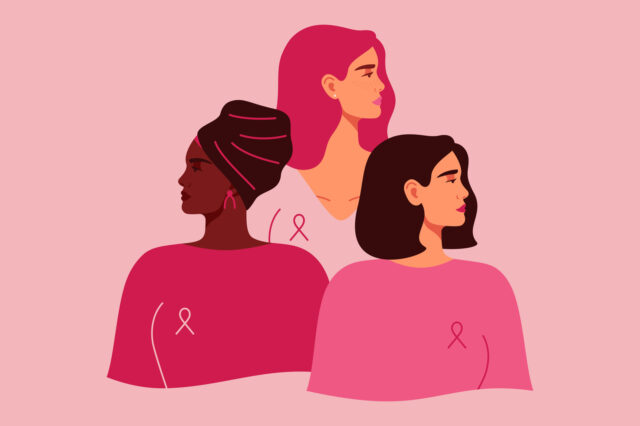Recurrent Breast Cancer Leads to Breast Reconstruction

Performing a simple task like putting a box on a shelf shouldn’t be a life-changing event. But when the box fell and hit Diane on her right breast, trouble began. Diane, who had breast cancer 24 years before, noticed a large bruise forming on her previously reconstructed breast.
A few weeks later, Diane scheduled a mammogram. She followed the advice of the radiology technician to have the bruise examined further. An ultrasound revealed the bruise was a hematoma with a mass located behind it. Doctors drained 16 cubic centimeters of blood out of the hematoma to biopsy the mass, and discovered a pea-sized malignant tumor on the same breast she had cancer in two decades prior.
Diane went to Noah Prince, M.D., a plastic surgeon at UF Health Plastic Surgery and Aesthetics at Halifax Health, for breast reconstruction. She chose to see Prince because she was told he was the best in the Daytona Beach area.
“Dr. Prince is absolutely great,” Diane said. “He sets you at ease and is very down to earth. He wants to make sure everything is fine. I can’t tell you how pleased I am with him.” She especially appreciates his sense of humor, which she said is comforting for her during her appointments.
After meeting with Diane, Prince determined the best first step toward reconstruction would include placing an expander in her right breast, since her skin had been affected by radiation years ago. Without an expander, Diane’s skin would not have enough stretch and blood flow to be able to accommodate an implant in the future.
On Jan. 28, Diane underwent a mastectomy, as well as the first stage of her reconstruction with Prince, in the same surgery. Prince continues to expand her skin on a weekly basis in order to protect her skin, and perfect her breast’s volume and shape. In addition, Diane now gets chemotherapy every three weeks. Prince will continue the reconstruction four weeks after she finishes chemotherapy, to make sure her body has the ability to heal from a second surgery. Chemotherapy can block cells from reproducing to heal surgical wounds.
“Breast reconstruction is a journey,” said Prince. “It often takes time to rebuild women to the point where they feel they are whole again, and every time they look in the mirror they do not notice what they are missing, but instead what they have overcome.” He offers multiple forms of reconstruction and revision, each tailored to the individual needs of his patients, and continues to expand the capabilities of reconstructive plastic surgery in the Volusia County area.
But Diane is an internal optimist. When preparing for her mastectomy, she had a feeling that everything would be fine. Since she has been through this process before, she was able to grasp everything. She knew what to expect.
“It’s been a long journey for 24 years,” Diane explained. “I thought everything was fine, but now I start the journey over again.”
Diane still gets emotional about the diagnosis, but she credits Prince for making her feel comfortable and at ease throughout her time with UF Health.
When her treatments come to an end and her reconstruction is completed, Diane said she is most excited to put her energy back into volunteering in her community, starting with the charity where she serves as president.
About the author
